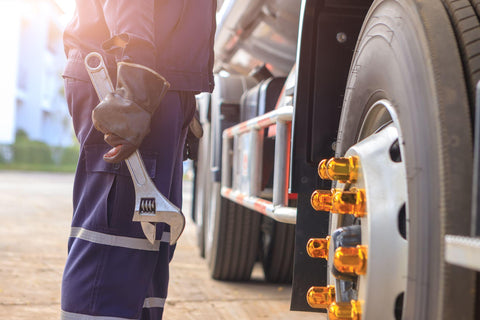
The trucking industry serves as the backbone of the global economy, facilitating the movement of goods across continents. However, this crucial service comes at an environmental cost. Trucking contributes significantly to air pollution, carbon emissions, and ecological disturbances.
Below, we aim to explore how your fleet can pivot toward more sustainable practices, ensuring a greener and more responsible future.
The Environmental Impact of Trucking
Trucking’s environmental impact is substantial. The industry is a major contributor to global carbon emissions, significantly influencing climate change. Additionally, truck emissions contribute to air pollution, posing health risks and impacting biodiversity. This widespread environmental footprint necessitates urgent action to mitigate these effects and move toward more sustainable practices.
Current Sustainable Practices in Trucking
The industry has already begun embracing greener practices. Alternative fuels, such as electric, hydrogen, and biofuels, are becoming more prevalent, offering cleaner alternatives to traditional diesel. Aerodynamic truck designs are being adopted to reduce fuel consumption and, consequently, emissions. Furthermore, driver training programs focused on fuel-efficient driving techniques are helping reduce the overall carbon footprint of the trucking industry.
Technological Innovations for Sustainability
Technological advancements are at the forefront of the sustainability movement in trucking. Electric and hybrid trucks are increasingly seen as viable alternatives, offering a substantial reduction in emissions. Innovations in fuel efficiency, such as advanced engine designs and tire improvements, contribute to lower fuel consumption. The potential of autonomous trucks also presents an exciting future, with prospects of optimized routing and further efficiency gains.
Strategies for Making Your Fleet More Eco-Friendly

The transition toward an environmentally friendly fleet is not just a noble goal; it’s a necessary step for the future of the trucking industry.
Here are several strategies that can help make your fleet more eco-friendly:
- Invest in Fuel-Efficient Vehicles: One of the most impactful steps is to invest in newer, more fuel-efficient vehicles. This could mean transitioning to electric or hybrid trucks, which significantly reduce emissions. Even within conventional fuel vehicles, newer models are often designed to be more fuel-efficient than their predecessors.
- Regular Maintenance: Keeping trucks in top condition is essential for fuel efficiency. Regular maintenance checks ensure engines run efficiently, tires are properly inflated, and aerodynamics are not compromised by unnecessary wear and tear. This can lead to substantial reductions in fuel consumption.
- Use of Alternative Fuels: Consider using alternative fuels like biodiesel, natural gas, or electricity. These fuels can reduce your fleet’s carbon footprint and, in some cases, are more cost-effective in the long run.
- Implement Eco-Driving Training: Train your drivers in eco-driving techniques. This includes smooth acceleration and braking, maintaining steady speeds, and avoiding unnecessary idling. Eco-driving not only reduces fuel consumption and emissions but also promotes safer driving habits.
- Route Optimization: Utilize GPS and route planning software to find the most efficient routes. Shorter routes and less time spent in traffic lead to lower fuel consumption and reduced emissions.
- Aerodynamic Modifications: Adding aerodynamic features to trucks, like side skirts and roof fairings, can significantly reduce wind resistance, which in turn reduces fuel consumption.
- Tire Management: Invest in low rolling resistance tires and maintain proper tire pressure. This reduces the amount of energy needed to move the truck, improving fuel efficiency.
- Lightweighting: Reduce the weight of the trucks wherever possible. Using lighter materials for parts and reducing unnecessary cargo can improve fuel efficiency.
- Monitor and Manage Fuel Use: Implementing a fuel management system helps in tracking and analyzing fuel usage. Insights from data can help identify areas for improvement and monitor the impact of eco-friendly measures.
- Invest in Renewable Energy: If possible, invest in renewable energy sources for your facilities. Solar panels or wind turbines can power your operations or charge electric vehicles, further reducing your carbon footprint.
Level Up Your Fleet
Elevate your fleet’s performance and driver satisfaction with Suburban Seating & Safety’s premium selection of semi-truck seats and accessories. Our ergonomically designed seats enhance driver comfort and safety, essential for long hauls, while our diverse range of durable accessories offers customized solutions to meet your fleet’s unique needs.
Stay ahead with innovative seating solutions and benefit from our expert team’s personalized consultation to find the perfect fit for your budget and requirements. Shop our website or contact us today to transform your fleet’s driving experience with Suburban Seating & Safety, where unparalleled comfort meets quality.

